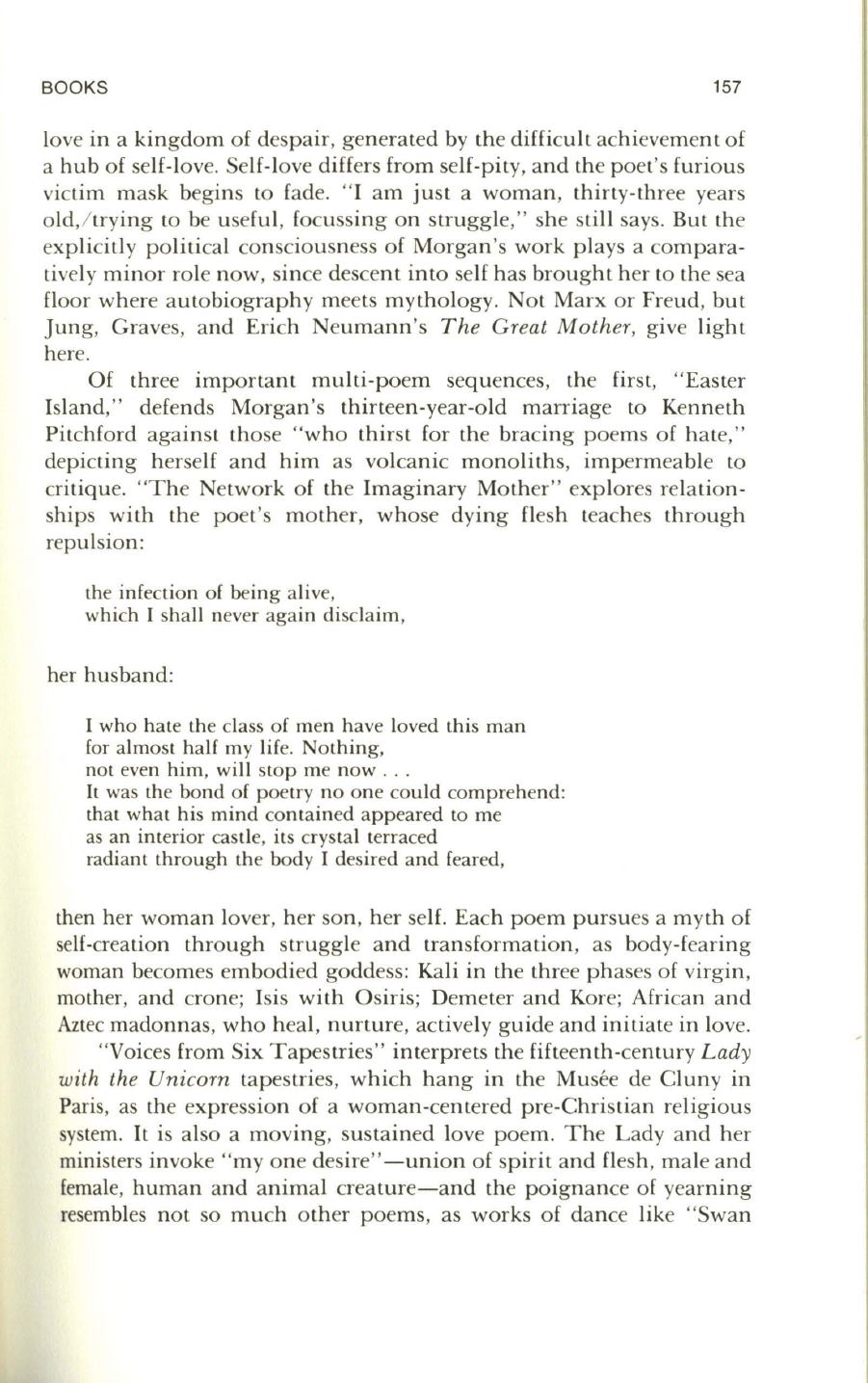
BOOKS
157
love in a kingdom of despair, generated by the difficult achievement of
a hub of self-love. Self-love differs from self-pity, and the poet's furious
victim mask begins
to
fade . " I am just a woman, thirty-three years
old, / trying to be useful , focussing on struggle," she still says. But the
explicitly political consciousness of Morgan 's work plays a compara–
tively minor role now, since descent into self has brought her to the sea
floor where autobiography meets mythology. Not Marx or Freud, but
Jung, Graves, and Erich Neumann's
The Great Mother,
give light
here.
Of three important multi-poem sequences, the first, "Easter
Island," defends Morgan's thirteen-year-old marriage to Kenneth
Pitchford against those "who thirst for the bracing poems of hate,"
depicting herself and him as volcanic monoliths, impermeable to
critique. "The Network of the Imaginary Mother" explores relation–
ships with the poet's mother, whose dying flesh teaches through
repulsion:
the infection of being alive,
which I shall never again disclaim,
her husband:
I who hate the class of men have loved this man
for almost half my life. Nothing,
not even him, will stop me now ...
It was the bond of poetry no one could comprehend:
that what his mind contained appeared to me
as an interior castle, its crystal terraced
radiant through the body I desired and feared,
then her woman lover, her son, her self. Each poem pursues a myth of
self-creation through struggle and transformation, as body-fearing
woman becomes embodied goddess: Kali in the three phases of virgin,
mother, and crone; Isis with Osiris; Demeter and Kore; African and
Aztec madonnas, who heal, nurture, actively guide and initiate in love.
"Voices from Six Tapestries" interprets the fifteenth-century
Lady
with the Unicorn
tapestries, which hang in the Musee de Cluny in
Paris, as the expression of a woman-centered pre-Christian religious
system. It is also a moving, sustained love poem. The Lady and her
ministers invoke "my one desire" -union of spirit and flesh, male and
female, human and animal creature-and the poignance of yearning
resembles not so much other poems, as works of dance like "Swan


